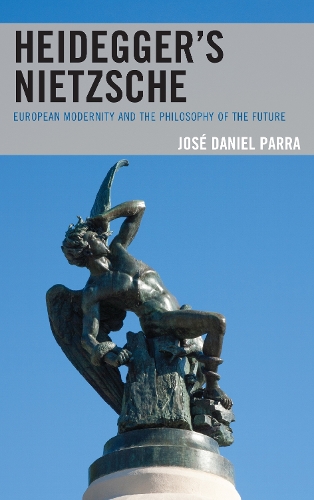
Heideggers Nietzsche: European Modernity and the Philosophy of the Future
(Hardback)
Publishing Details
Heideggers Nietzsche: European Modernity and the Philosophy of the Future
By (Author) Jos Daniel Parra
Bloomsbury Publishing PLC
Lexington Books
29th April 2019
United States
Classifications
Professional and Scholarly
Non Fiction
Philosophy
Politics and government
193
Physical Properties
Hardback
224
Width 159mm, Height 231mm, Spine 22mm
517g
Description
Heideggers Nietzsche: European Modernity and the Philosophy of the Future offers a study of two key figures in the history of philosophy. By way of a textual interpretation of Martin Heideggers reading of Friedrich Nietzsche, it draws renewed attention to the question of ontology in the history of Western thought. The discussion unfolds in the context of an epochal period of transition in European culture that in Heideggers interpretation of Nietzsche is in the process of fulfillment. The book examines the sources of this transformative event, with special emphasis on the contrast between the modern predominance of Cartesian inter-subjectivity and a manner of thought that dwells in the philosophical anthropology of classical Greek culture. It partakes in the Platonic-Aristotelian tradition of studying the life of the mind from architectonic perspectives, highlighting the key comparative importance of philosophical vision, in tandem with the voice of conscience. In that spirit, the book explores an encounter between Heidegger and Nietzsche at the interstice between hermeneutics and a therapeutic consideration of philosophy.
Reviews
This is a remarkable book. Under the guidance of Jos Daniel Parras careful and penetrating analysis of Heideggers confrontation with Nietzsches texts, the reader is brought into a rich, complex, and absorbing dialogue between two of the most important thinkers of the modern age, while also revisiting with fresh eyes the history of metaphysical philosophy ranging from Plato, Descartes, Kant, and Hegel. Anyone who wants to understand the genesis, meaning, and continuing relevance of the concept of nihilism in our time simply must consult Parras majestic rendering of the intellectual and philosophical architecture of the postmodern mind. -- Lee Ward, Baylor University
This book has the rare quality of being both comprehensive and path breaking. From its initial treatment of major twentieth- and twenty-first-century scholarly literature on the NietzscheHeidegger relation, it follows both Nietzsche and Heideggers lead, in that, like Nietzsche and Heidegger, this too is a kind of `thought experiment at the nexus of hermeneutics and political philosophy, which, in the authors words, `bring[s] to our attention a spiritual crisis of epic proportions. -- Tom Darby, Carleton University
Author Bio
Jos Daniel Parra is lecturer and research associate in government and international relations at Universidad Externado de Colombia.
